Over 1,300 Pilgrims Die During Hajj Amid Extreme Heat

Over 1,300 pilgrims died during this year's Hajj in Saudi Arabia, more than five times the number reported last year, the Saudi government announced, as heatwaves spread across the world.

Over 1,300 pilgrims died during this year's Hajj in Saudi Arabia, more than five times the number reported last year, the Saudi government announced, as heatwaves spread across the world.
The majority of the deceased were Egyptians, accounting for 672 deaths, while 236 were Indonesians, Reuters reported.
According to India's External Affairs agency, 98 Indian citizens also died during this year’s Hajj.
Additional fatalities were reported from Tunisia, Jordan, Iran, and Senegal, bringing the total death toll to 1,301, according to the Saudi Hajj Ministry.
The Iranian death toll reached 17 on Saturday, with an additional 26 pilgrims hospitalized, as confirmed by the Iranian authorities.
In Egypt, where the majority of the deceased pilgrims were from, Reuters reported that a crisis unit has suspended the licenses of 16 tourism companies and referred them to the public prosecutor.
These companies are accused of being responsible for the deaths, primarily among unregistered pilgrims. The unit also confirmed that 31 officially registered pilgrims died due to chronic illnesses.
To combat the mass of yearly deaths that occur, Saudi officials have implemented several safety measures, such as climate-controlled environments and extensive medical services, mitigating the health dangers associated with the extreme heat.
Last year, the pilgrimage saw as many as 240 deaths, with temperatures soaring to about 48 degrees Celsius.
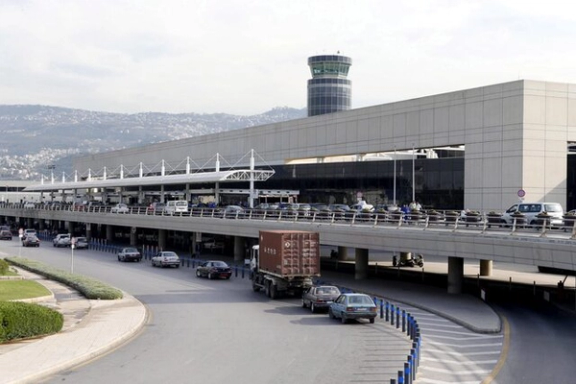
Lebanon's Hezbollah is amassing a large cache of Iranian weapons at Beirut’s main civilian airport, Rafic Hariri International Airport, whistleblowers say.
The weapons stored include Falaq unguided artillery rockets, Fateh-110 and M-600 short-range missiles, and other advanced munitions, according to whistleblowers quoted by The Telegraph on Sunday.
There are also reports of the presence of AT-14 Kornet anti-tank guided missiles, Burkan short-range ballistic missiles, and RDX explosives.
The situation at the airport, located just four miles from Beirut's city center, has escalated concerns that it could become a military target for Israel amid rising tensions between the two sides.
One airport worker revealed the arrival of "mysterious large boxes from Iran," marking a concerning uptick in arms storage that coincides with heightened regional tensions. The worker expressed fears reminiscent of the devastating Beirut port explosion in 2020, suggesting that a similar incident could occur at the airport due to such activities.
Insiders report that Hezbollah's influence over airport operations has visibly increased, with the group's key figures, like its second-in-command Wafiq Safa, being regularly spotted managing affairs directly, intensifying the threat of retaliation by Israeli forces.
Later on Sunday, Lebanon’s Hezbollah-affiliated Transport Minister Ali Hamieh held a press conference at the Beirut–Rafic Hariri International Airport to dismiss what he called "ridiculous" allegations by whistleblowers that the airport is used by Hezbollah to store Iranian weapons.
He invited journalists and ambassadors to take a tour of the airport's facilities on Monday morning to prove "there's nothing to hide".
He also said that his office is in the process of filing a lawsuit against Telegraph.
Hezbollah, Iran's most formidable proxy, funded, trained, and armed by Tehran, continues its daily skirmishes with Israeli forces amid the ongoing Gaza conflict. The northern border conflict marks the most severe since the Second Lebanon War.
Since the October 7 invasion, Hezbollah, along with Iran's proxies in Syria, Yemen, Iraq, and Gaza, has supported Hamas by launching missiles towards all of Israel's borders.
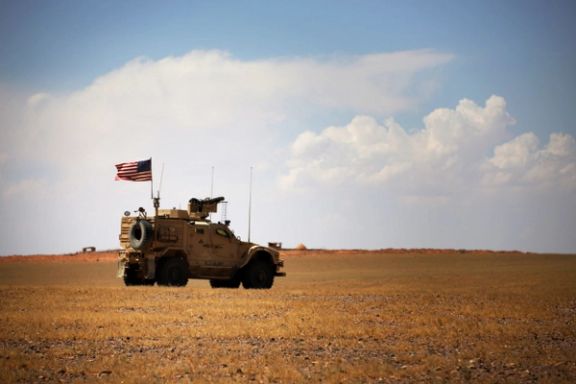
A drone aiming for a US military base in Syria's Al-Tanf was intercepted and destroyed on Saturday, months after Iran-backed militants suspended such attacks following the deaths of three US troopers in an attack on a nearby base.
The Al-Tanf base, located within a 55-kilometer exclusion zone at the convergence of the Syrian, Jordanian, and Iraqi borders, engaged its air defenses after the drone ventured in from the east, the Syrian Observatory for Human Rights reported on Saturday.
The incident occurred less than 24 hours after airstrikes that hit an Iranian-backed militia in the Al Bukamal area near the Syrian-Iraqi border, reportedly killing one and injuring two militants.
While no group has claimed responsibility for the drone attack on the US base, such assaults are typically claimed by the Islamic Resistance in Iraq, a coalition of Tehran-backed militants.
The ongoing strikes underscore the escalating tension between US forces and Iranian-supported groups in the region.
The groups have been criticized for their recklessness, which led to a regional flare-up in January when a drone strike by the Islamic Resistance in Iraq killed three US troops in a US base in Jordan, close to the one in Al-Tanf.
The breach of several regional and US red lines prompted a response involving a series of US airstrikes across Iraq and Syria.
The risk of escalation became so serious that the commander of Iran's elite Quds Force made a trip to Baghdad to instruct the factions to reduce their attacks, according to Iranian and Iraqi sources who spoke to Reuters.
Following the intervention, there was a temporary cessation of attacks on US forces. However, after a brief period of calm, the focus of the attacks shifted towards Israel.
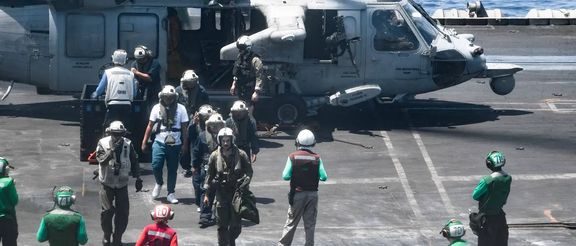
Yemen's Iran-backed Houthi rebels say they have attacked the US aircraft carrier USS Eisenhower in the Red Sea, but the US says the claim is false.
A US official told Reuters that the claim by the rebel group is false, and no such attack has been carried out.
On Saturday, the Yemeni Houthi group announced that its forces had launched attacks on the US aircraft carrier Eisenhower in the Red Sea and the "Israeli-linked" Transworld Navigator ship in the Arabian Sea.
The exact timing of the attacks was not specified.
According to a statement from the Houthis, the Transworld Navigator was struck directly by a missile.
The group also declared that the operation targeting the Eisenhower had successfully met its objectives, though further details were not provided.
The Houthis' claim comes on the same day as the US Central Command has announced the return of the Eisenhower Carrier Strike Group (IKE CSG) to the United States.
"After flying over 30,000 hours and sailing more than 55,000 miles, the IKE CSG has shown our dedication to regional stability and safeguarded freedom of navigation across the Red Sea and Gulf of Aden," the command stated in a tweet on Saturday.
The Houthis have increased their maritime assaults, including the recent sinking of the ship Tutor, marking a new phase in their strategy against international shipping routes since the beginning of the Israel-Hamas conflict in Gaza.
The attacks began after Iran's Supreme Leader Ali Khamenei called on Muslim nations in early November to blockade Israeli trade in the wake of the Gaza war.
The Houthis claim over 60 targeted attacks on vessels and numerous other missile and drone launches since November, leading to the deaths of four sailors and the capture or sinking of several ships.
Despite Houthi claims of targeting vessels connected to Israel, the US, or Britain, many of the attacked ships reportedly have minimal or no links to the Israel-Hamas war. In response, a US-led airstrike campaign has been targeting Houthi positions since January.
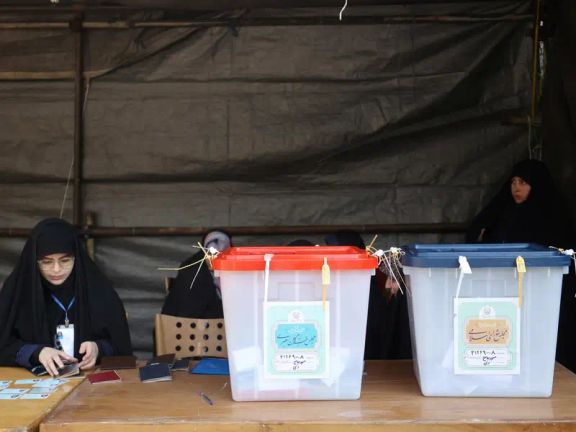
The Biden administration has once again permitted Iran's government to establish absentee ballot stations across the US for the upcoming Iranian presidential election on June 28.
The decision, first reported by the Voice of America, has sparked outrage among critics who view it as legitimizing the Islamic Republic’s "authoritarian rule".
Alireza Mahmoudi, an official from the Iranian Foreign Ministry, earlier confirmed plans to set up 30 voting locations, including at venues such as the Iranian Interests Section at the Pakistani embassy in Washington DC and a location in New York.
The move comes despite the US State Department’s acknowledgment that Iran’s elections are "neither free nor fair", as it only allows candidates loyal to Supreme Leader Ali Khamenei to run.
"Preposterous. The concept of a free and fair election under the Islamic Republic is a fallacy," said Iranian-British activist and actress Nazanin Boniadi.
"While regime opponents are advocating for a boycott, the US inexplicably permits absentee ballots for this farce?" she added in reaction to the Biden administration's decision.
The locations for these ballot stations have raised further concerns. In 2021, several US and British hotel properties and Islamic centers were used as polling stations, though there is no confirmation if these venues will be used again.
Critics, including Cameron Khansarinia, vice president of the National Union for Democracy in Iran (NUFDI), argue that those participating in and operating these stations should be “publicly shamed” for their role in supporting what many consider a “sham election”.
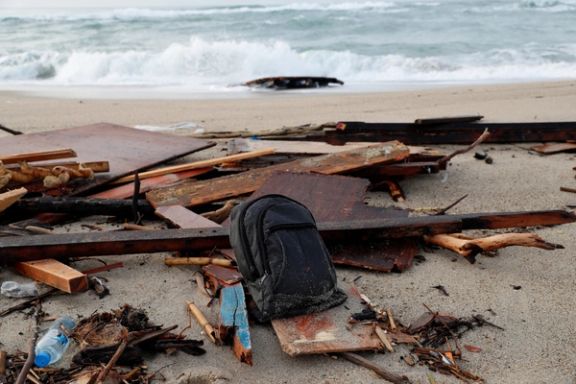
The Embassy of the Islamic Republic in Rome has confirmed that Iranian nationals were among those who perished when a migrant sailboat capsized in the Mediterranean on June 16.
Mitra Ghasem Karimi, whose brother and sister are among those missing, informed Iran International that the families of the others are independently attempting to hire helicopters to search for their relatives.
The vessel had departed from Turkey approximately eight days prior with around 75 individuals from Iran, Syria, and Iraq on board, according to reports from the UN refugee agency and other UN organizations.
The Italian coastguard has recovered 20 bodies from a weekend shipwreck in the Ionian Sea off the southern Italian coastline, with dozens more missing and presumed dead.
Survivors, according to the AP, recounted that the boat's engine caught fire overnight on Sunday, leading to its capsizing off the Italian coast.
The fatalities mark a total exceeding 800 individuals who have perished or gone missing and are presumed deceased while attempting to cross the central Mediterranean this year alone, amounting to an average of five deaths per day, according to reports from UN agencies.
Iranians, known for their extensive history of emigration, primarily since the 1979 revolution, represent a significant portion of migrants embarking on perilous journeys across the English Channel to reach the UK and across the Mediterranean Sea to Europe.